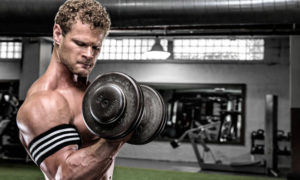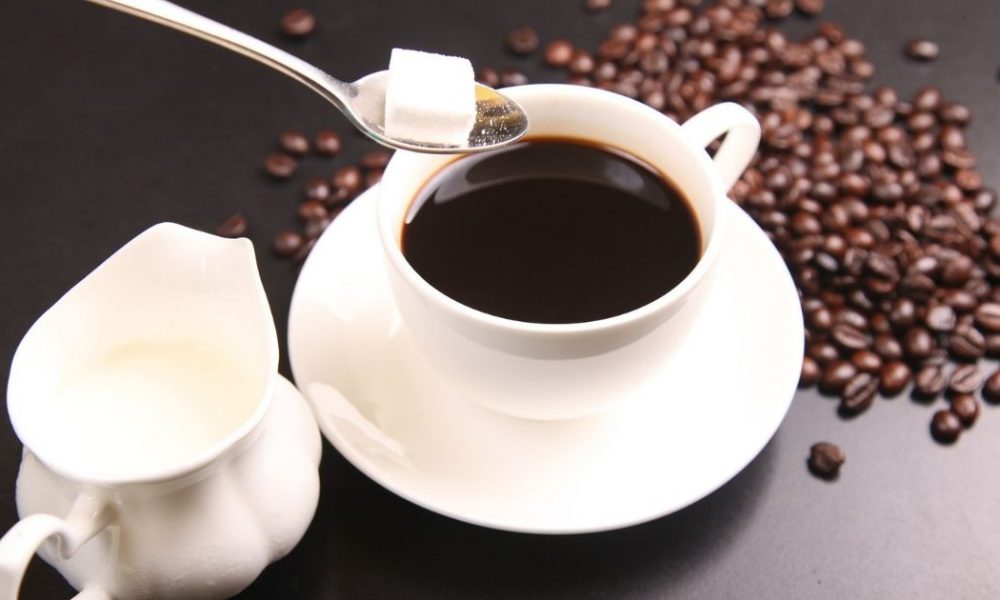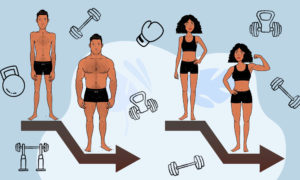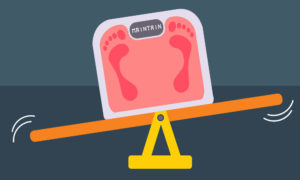- Heckman, Melanie A, et al. “Caffeine (1, 3, 7-Trimethylxanthine) in Foods: a Comprehensive Review on Consumption, Functionality, Safety, and Regulatory Matters.” Journal of Food Science, U.S. National Library of Medicine, Apr. 2010, www.ncbi.nlm.nih.gov/pubmed/20492310.
- “Coffee, Caffeine, and Health Outcomes: An Umbrella Review.” Annual Reviews, www.annualreviews.org/doi/pdf/10.1146/annurev-nutr-071816-064941#article-denial.
- Grgic, Jozo, et al. “Effects of Caffeine Intake on Muscle Strength and Power: a Systematic Review and Meta-Analysis.” Journal of the International Society of Sports Nutrition, BioMed Central, 5 Mar. 2018, www.ncbi.nlm.nih.gov/pmc/articles/PMC5839013/.
- Shen, Joy G, et al. “Establishing a Relationship between the Effect of Caffeine and Duration of Endurance Athletic Time Trial Events: A Systematic Review and Meta-Analysis.” Journal of Science and Medicine in Sport, U.S. National Library of Medicine, Feb. 2019, www.ncbi.nlm.nih.gov/pubmed/30170953.
- Grgic, Jozo, et al. “The Influence of Caffeine Supplementation on Resistance Exercise: A Review.” Sports Medicine (Auckland, N.Z.), U.S. National Library of Medicine, Jan. 2019, www.ncbi.nlm.nih.gov/pubmed/30298476.
- Dulloo, A G, et al. “Normal Caffeine Consumption: Influence on Thermogenesis and Daily Energy Expenditure in Lean and Postobese Human Volunteers.” The American Journal of Clinical Nutrition, U.S. National Library of Medicine, Jan. 1989, www.ncbi.nlm.nih.gov/pubmed/2912010.
- Rudelle, Servane, et al. “Effect of a Thermogenic Beverage on 24‐Hour Energy Metabolism in Humans – Rudelle – 2007 – Obesity – Wiley Online Library.” Obesity, John Wiley & Sons, Ltd, 6 Sept. 2012, onlinelibrary.wiley.com/doi/full/10.1038/oby.2007.529.
- Grgic, Jozo, et al. “Wake up and Smell the Coffee: Caffeine Supplementation and Exercise Performance-an Umbrella Review of 21 Published Meta-Analyses.” British Journal of Sports Medicine, BMJ Publishing Group Ltd and British Association of Sport and Exercise Medicine, 29 Mar. 2019, bjsm.bmj.com/content/early/2019/03/29/bjsports-2018-100278.
- Haskell, Crystal F, et al. “Cognitive and Mood Improvements of Caffeine in Habitual Consumers and Habitual Non-Consumers of Caffeine.” Psychopharmacology, U.S. National Library of Medicine, June 2005, www.ncbi.nlm.nih.gov/pubmed/15678363.
- Childs, Emma, and Harriet de Wit. “Subjective, Behavioral, and Physiological Effects of Acute Caffeine in Light, Nondependent Caffeine Users.” Psychopharmacology, U.S. National Library of Medicine, May 2006, www.ncbi.nlm.nih.gov/pubmed/16541243.
- Killer, Sophie C, et al. “No Evidence of Dehydration with Moderate Daily Coffee Intake: a Counterbalanced Cross-over Study in a Free-Living Population.” PloS One, Public Library of Science, 9 Jan. 2014, www.ncbi.nlm.nih.gov/pubmed/24416202.
- Maughan, R J, and J Griffin. “Caffeine Ingestion and Fluid Balance: a Review.” Journal of Human Nutrition and Dietetics : the Official Journal of the British Dietetic Association, U.S. National Library of Medicine, Dec. 2003, www.ncbi.nlm.nih.gov/pubmed/19774754.
- Zhang, Yang, et al. “Caffeine and Diuresis during Rest and Exercise: A Meta-Analysis.” Journal of Science and Medicine in Sport, U.S. National Library of Medicine, Sept. 2015, www.ncbi.nlm.nih.gov/pubmed/25154702.
- Drake, Christopher, et al. “Caffeine Effects on Sleep Taken 0, 3, or 6 Hours before Going to Bed.” Journal of Clinical Sleep Medicine : JCSM : Official Publication of the American Academy of Sleep Medicine, American Academy of Sleep Medicine, 15 Nov. 2013, www.ncbi.nlm.nih.gov/pmc/articles/PMC3805807/.
- Doty, Tracy Jill, et al. “Limited Efficacy of Caffeine and Recovery Costs During and Following 5 Days of Chronic Sleep Restriction.” Sleep, U.S. National Library of Medicine, 1 Dec. 2017, www.ncbi.nlm.nih.gov/pubmed/29029309.
- Alicandro, Gianfranco, et al. “Coffee and Cancer Risk: a Summary Overview.” European Journal of Cancer Prevention : the Official Journal of the European Cancer Prevention Organisation (ECP), U.S. National Library of Medicine, Sept. 2017, www.ncbi.nlm.nih.gov/pubmed/28288025.
- Wikoff, Daniele, et al. “Systematic Review of the Potential Adverse Effects of Caffeine Consumption in Healthy Adults, Pregnant Women, Adolescents, and Children.” Food and Chemical Toxicology : an International Journal Published for the British Industrial Biological Research Association, U.S. National Library of Medicine, Nov. 2017, www.ncbi.nlm.nih.gov/pubmed/28438661.
- Morgan, Sara, et al. “Is Caffeine Consumption Safe during Pregnancy?” Canadian Family Physician Medecin De Famille Canadien, College of Family Physicians of Canada, Apr. 2013, www.ncbi.nlm.nih.gov/pmc/articles/PMC3625078/.
- “Pike Place® Roast.” Starbucks Coffee Company, www.starbucks.com/menu/drinks/brewed-coffee/pike-place-roast#size=1.
- McCusker, Rachel R, et al. “Caffeine Content of Specialty Coffees.” Journal of Analytical Toxicology, U.S. National Library of Medicine, Oct. 2003, www.ncbi.nlm.nih.gov/pubmed/14607010.
- Lara, Beatriz, et al. “Time Course of Tolerance to the Performance Benefits of Caffeine.” PloS One, Public Library of Science, 23 Jan. 2019, www.ncbi.nlm.nih.gov/pmc/articles/PMC6343867/.
- Saunders, B, et al. “Placebo in Sports Nutrition: a Proof-of-Principle Study Involving Caffeine Supplementation.” Scandinavian Journal of Medicine & Science in Sports, U.S. National Library of Medicine, Nov. 2017, www.ncbi.nlm.nih.gov/pubmed/27882605.
- Kim, Youngyo, et al. “Coffee Consumption and All-Cause and Cause-Specific Mortality: a Meta-Analysis by Potential Modifiers.” European Journal of Epidemiology, U.S. National Library of Medicine, Aug. 2019, www.ncbi.nlm.nih.gov/pubmed/31055709.
- Beedie, Christopher J, et al. “Placebo Effects of Caffeine on Cycling Performance.” Medicine and Science in Sports and Exercise, U.S. National Library of Medicine, Dec. 2006, www.ncbi.nlm.nih.gov/pubmed/17146324.
- Juliano, Laura M, and Roland R Griffiths. “A Critical Review of Caffeine Withdrawal: Empirical Validation of Symptoms and Signs, Incidence, Severity, and Associated Features.” Psychopharmacology, U.S. National Library of Medicine, Oct. 2004, www.ncbi.nlm.nih.gov/pubmed/15448977.
- Smith, Andrew P, et al. “Acute Effects of Caffeine on Attention: a Comparison of Non-Consumers and Withdrawn Consumers.” Journal of Psychopharmacology (Oxford, England), U.S. National Library of Medicine, Jan. 2013, www.ncbi.nlm.nih.gov/pubmed/22992376.
- Wilk, Michal, et al. “The Effects of High Doses of Caffeine on Maximal Strength and Muscular Endurance in Athletes Habituated to Caffeine.” MDPI, Multidisciplinary Digital Publishing Institute, 15 Aug. 2019, www.mdpi.com/2072-6643/11/8/1912/htm.
- Guerra, Mauro Antônio. “Acute Caffeine Ingestion Did Not Enhance Punch Performance in Professional Mixed-Martial Arts Athletes.” MDPI, Multidisciplinary Digital Publishing Institute, 25 June 2019, www.mdpi.com/2072-6643/11/6/1422/htm.
- Ferreira, G A, et al. “Does Caffeine Ingestion before a Short-Term Sprint Interval Training Promote Body Fat Loss?” Brazilian Journal of Medical and Biological Research = Revista Brasileira De Pesquisas Medicas e Biologicas, Associação Brasileira De Divulgação Científica, 5 Dec. 2019, www.ncbi.nlm.nih.gov/pmc/articles/PMC6903805/.
- Tinsley GM;Hamm MA;Hurtado AK;Cross AG;Pineda JG;Martin AY;Uribe VA;Palmer TB; “Effects of Two Pre-Workout Supplements on Concentric and Eccentric Force Production During Lower Body Resistance Exercise in Males and Females: A Counterbalanced, Double-Blind, Placebo-Controlled Trial.” Journal of the International Society of Sports Nutrition, U.S. National Library of Medicine, pubmed.ncbi.nlm.nih.gov/29209154-effects-of-two-pre-workout-supplements-on-concentric-and-eccentric-force-production-during-lower-body-resistance-exercise-in-males-and-females-a-counterbalanced-double-blind-placebo-controlled-trial/.
- Feduccia, et al. “The Effects of a Caffeine-like Supplement, TeaCrine®, on Muscular Strength, Endurance and Power Performance in Resistance-Trained Men.” Journal of the International Society of Sports Nutrition, BioMed Central, 1 Jan. 1970, jissn.biomedcentral.com/articles/10.1186/s12970-019-0316-5.
- Alsene, Karen, et al. “Association Between A 2a Receptor Gene Polymorphisms and Caffeine-Induced Anxiety.” Nature News, Nature Publishing Group, 14 May 2003, www.nature.com/articles/1300232.
- Lara B;Ruiz-Moreno C;Salinero JJ;Del Coso J; “Time Course of Tolerance to the Performance Benefits of Caffeine.” PloS One, U.S. National Library of Medicine, pubmed.ncbi.nlm.nih.gov/30673725-time-course-of-tolerance-to-the-performance-benefits-of-caffeine/.
- RR;, Juliano LM;Griffiths. “A Critical Review of Caffeine Withdrawal: Empirical Validation of Symptoms and Signs, Incidence, Severity, and Associated Features.” Psychopharmacology, U.S. National Library of Medicine, pubmed.ncbi.nlm.nih.gov/15448977-a-critical-review-of-caffeine-withdrawal-empirical-validation-of-symptoms-and-signs-incidence-severity-and-associated-features/.
- Gavrieli A;Yannakoulia M;Fragopoulou E;Margaritopoulos D;Chamberland JP;Kaisari P;Kavouras SA;Mantzoros CS; “Caffeinated Coffee Does Not Acutely Affect Energy Intake, Appetite, or Inflammation but Prevents Serum Cortisol Concentrations From Falling in Healthy Men.” The Journal of Nutrition, U.S. National Library of Medicine, pubmed.ncbi.nlm.nih.gov/21346100-caffeinated-coffee-does-not-acutely-affect-energy-intake-appetite-or-inflammation-but-prevents-serum-cortisol-concentrations-from-falling-in-healthy-men/.
- JL;, Panek-Shirley LM;DeNysschen C;O’Brien E;Temple. “Caffeine Transiently Affects Food Intake at Breakfast.” Journal of the Academy of Nutrition and Dietetics, U.S. National Library of Medicine, pubmed.ncbi.nlm.nih.gov/30033159-caffeine-transiently-affects-food-intake-at-breakfast/.
Grgic, Jozo, et al. “CYP1A2 Genotype and Acute Effects of Caffeine on Resistance Exercise, Jumping, and Sprinting Performance.” Journal of the International Society of Sports Nutrition, BioMed Central, 15 Apr. 2020, www.ncbi.nlm.nih.gov/pmc/articles/PMC7161272/.
Grgic, Jozo, et al. “ADOR2A C Allele Carriers Exhibit Ergogenic Responses to Caffeine Supplementation.” Nutrients, MDPI, 11 Mar. 2020, www.ncbi.nlm.nih.gov/pmc/articles/PMC7146260/.
Kolb, Hubert, et al. “Health Effects of Coffee: Mechanism Unraveled?” MDPI, Multidisciplinary Digital Publishing Institute, 20 June 2020, www.mdpi.com/2072-6643/12/6/1842.
Quinlivan, Alannah, et al. “The Effects of Red Bull Energy Drink Compared With Caffeine on Cycling Time-Trial Performance.” Human Kinetics, Human Kinetics, Inc., 1 Oct. 2015, journals.humankinetics.com/view/journals/ijspp/10/7/article-p897.xml.
Waller, Georgina, et al. “A Low Caffeine Dose Improves Maximal Strength, but Not Relative Muscular Endurance in Either Heavier-or Lighter-Loads, or Perceptions of Effort or Discomfort at Task Failure in Females.” PeerJ, PeerJ Inc., 14 May 2020, www.ncbi.nlm.nih.gov/pmc/articles/PMC7231502/.
Beaumont R;Cordery P;Funnell M;Mears S;James L;Watson P; “Chronic Ingestion of a Low Dose of Caffeine Induces Tolerance to the Performance Benefits of Caffeine.” Journal of Sports Sciences, U.S. National Library of Medicine, pubmed.ncbi.nlm.nih.gov/27762662/.
Alperet DJ;Rebello SA;Khoo EY;Tay Z;Seah SS;Tai BC;Tai ES;Emady-Azar S;Chou CJ;Darimont C;van Dam RM; “The Effect of Coffee Consumption on Insulin Sensitivity and Other Biological Risk Factors for Type 2 Diabetes: a Randomized Placebo-Controlled Trial.” The American Journal of Clinical Nutrition, U.S. National Library of Medicine, pubmed.ncbi.nlm.nih.gov/31891374/.
Giráldez-Costas, Verónica, et al. “Pre-Exercise Caffeine Intake Enhances Bench Press Strength Training Adaptations.” Frontiers, Frontiers, 4 Jan. 2021, www.frontiersin.org/articles/10.3389/fnut.2021.622564/full.
Stojanovic, Emilija. “Acute Caffeine Supplementation Improves Jumping, Sprinting, and Change-of-Direction Performance in Basketball Players When Ingested in the Morning but Not Evening.” Taylor & Francis, www.tandfonline.com/doi/full/10.1080/17461391.2021.1874059.
- Torres-Collado. “Coffee Consumption and All-Cause, Cardiovascular, and Cancer Mortality in an Adult Mediterranean Population.” Nutrients, U.S. National Library of Medicine, pubmed.ncbi.nlm.nih.gov/33918797/.
Weibel, Janine, et al. “Regular Caffeine Intake Delays REM Sleep Promotion and Attenuates Sleep Quality in Healthy Men.” Journal of Biological Rhythms, SAGE Publications, Aug. 2021, https://www.ncbi.nlm.nih.gov/pmc/articles/PMC8276335/.
Loureiro, Laís Monteiro Rodrigues, et al. “Coffee Increases Post-Exercise Muscle Glycogen Recovery in Endurance Athletes: A Randomized Clinical Trial.” Nutrients, MDPI, 23 Sept. 2021, https://www.ncbi.nlm.nih.gov/pmc/articles/PMC8537367/.




